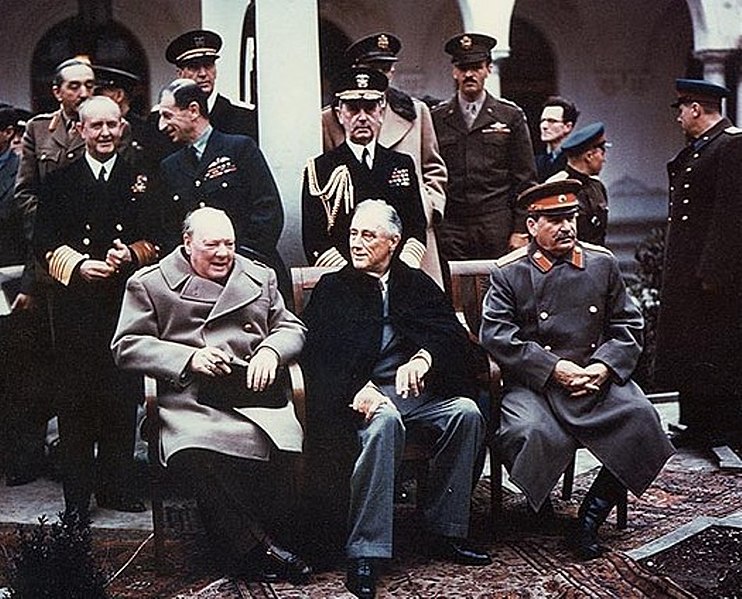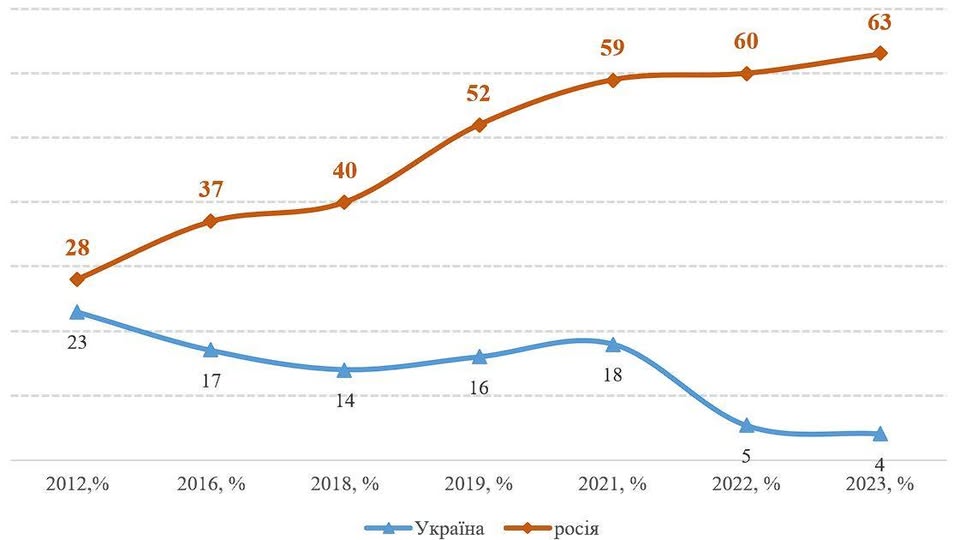The idol, the butcher: Expanding gap in attitudes toward Stalin reflects Ukraine and Russia’s diverging identities

The difference in attitudes toward Stalin serves as an X-ray of how far Ukraine and Russia have diverged, sociologists say.
Joseph Stalin was responsible for mass repressions, the organization of the Gulag concentration camp system, man-made famines, including the Holodomor in Ukraine that killed millions, as well as the bloody Great Purge of 1936–1938, during which at least 700,000 people were executed.
Ukraine and Russia now have radically different attitudes toward the Soviet dictator, and this divide continues to grow. New sociological research published by the Kyiv International Institute of Sociology (KIIS) and Russia’s Levada Center has released the evidence for this.
According to a poll conducted in April 2025, Stalin once again ranked first in Russia’s list of “the greatest figures of all time,” scoring even higher than in previous years.

“Joseph Stalin, a national hero for Russians, has again taken first place with an even better result than last time,” KIIS notes.
Sociologists emphasize that support for Stalin’s image in Russia is rising, while in Ukraine it is rapidly declining. In 2023, 63% of respondents in Russia viewed the dictator positively, compared to just 4% in Ukraine. This gap is only widening over the years.
“This chart clearly shows how far the two countries have diverged. Murderers have become national heroes in Russia,” Ukrainian sociologists point out.
The regimes of Stalin and Putin are similar in their contempt for the rule of law and human rights. Both systematically dismantle the independence of the judiciary and legislature, concentrating all power in the hands of a single ruler. They rely on security forces, Stalin’s NKVD, and Putin’s FSB, to crush opposition and intimidate society.
He orchestrated genocide, killed millions, yet for the Russians, he remains an idol. This divide in collective memory reveals not only historical differences but also fundamental value gaps between the two neighboring states.
Recently, the Netherlands recognized the 1944 Soviet deportation of Crimean Tatars under Stalin as an act of genocide. They were transported roughly 3,200 kilometers to remote areas in the Uzbek Soviet Socialist Republic and other parts of Central Asia, with thousands dying during the journey due to starvation.